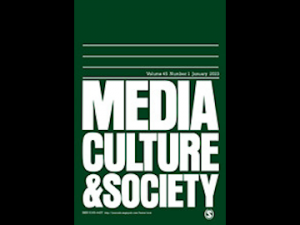
Article / Theorizing and mapping media ownership networks in authoritarian-populist contexts: a comparative analysis of Austria, Hungary, Slovenia, and Turkey
As a result of Populist Backlash, Democratic Backsliding, and the Crisis of the Rule of Law in the European Union project (POPBACK), a paper entitled Theorizing and mapping media ownership networks in authoritarian-populist contexts: a comparative analysis of Austria, Hungary, Slovenia, and Turkey has been published in Media, Culture & Society journal, with Mojca Pajnik and Tjaša Turnšek among the co-authors. The article aims to contribute to the ongoing discussions on authoritarian populism and the media, from the lens of the political economy of ownership.
The study analyses changes in the structure of news media ownership in four European countries (Austria, Hungary, Slovenia and Turkey) that have been, in varying degrees and periods, subject to authoritarian populism. It focuses on the period between 2000 and 2020, when different trends in media systems occurred, such as privatisation, concentration and digitalisation. By employing social network analysis, a methodology rarely used in media ownership research, the results reveals how news media ownership concentration as well as changes in ownership structures have provided favourable conditions for the rise and endurance of authoritarian populism. Conclusions show how authoritarian populist actors in the analysed countries not only capitalize on prevailing news media ownership structures, but also proactively intervene in ownership relations in order to increase influence over the diffusion of information.
The article is available here.
